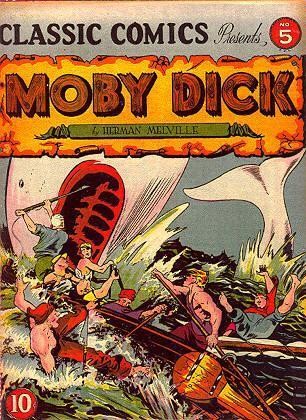
The Whiteness of the Whale
Over the past month or so, I've been getting through the audiobook of Moby-Dick. I knew nothing of the book prior to starting other than its status as a classic and the fact that it was about an albino whale. Though long and meandering, the story has become a meditative sanctuary of sorts for me, because it is the kind of story that doesn't beg to be finished quickly, nor does it move so slowly as to bore the reader (or, in my case, the listener).
To be honest, Moby-Dick has to have the slowest-moving plot of any book I've read (including philosophical works like Kierkegaard's Fear and Trembling). But what it lacks in action, it makes up for in enchantingly beautiful prose. Herman Melville delights me with his turns of phrase and rich vocabulary. To be sure, it is this quality that makes the novel's epic length not just bearable, but pleasurable and even invigorating.
Nowhere is this quality more nakedly apparent than in chapter 42, The Whiteness of the Whale. Yes, this entire chapter is devoted to exploring the meaning of the colour white, and how that meaning is perverted when juxtaposed with a great and terrible creature such as a shark, or a polar bear, or in this case, a sperm whale. It's superfluous, for sure, but that doesn't make it any less enjoyable.
It would seem Herman Melville has a subtle sense of humour (or obliviousness), because he introduces chapter 45 like this:
So far as what there may be of a narrative in this book; and, indeed, as indirectly touching one or two very interesting and curious particulars in the habits of sperm whales, the foregoing chapter, ... requires to be still further and more familiarly enlarged upon, in order to be adequately understood ...
Some might go mad trying to read a story as pretentious and lethargic as Moby-Dick. But when I'm listening to the audiobook, I just pretend I'm listening to a wise old man, perhaps with a bit of Alzheimer's because he keeps repeating things (though that doesn't explain the absurd amount of detail).
If you have the time and patience, read Moby-Dick or listen to the audiobook. When you emerge from the 136 interminable chapters, you won't regret it.
Sam Nabi